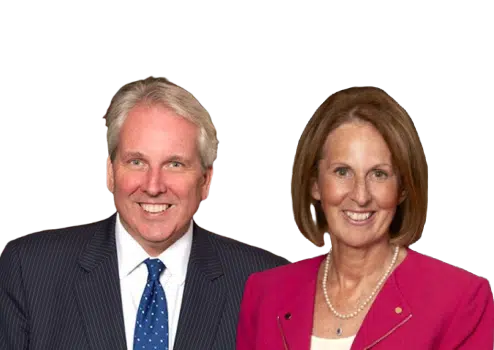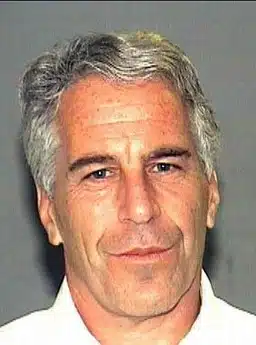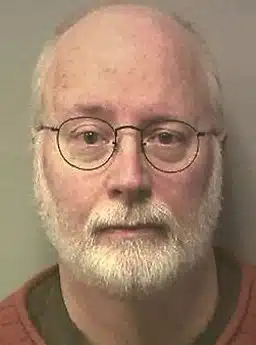 SCHEDULE A CALL
SCHEDULE A CALL
Source: Palm Beach County Sheriff's Department

Source: United States Federal Government

Source: Weill Cornell Medicine
The revelation of Jeffrey Epstein's infamous "little black book" has sent shockwaves across the globe, exposing a tangled web of connections among the world's elite. This 97-page document, containing over 1,500 names, phone numbers, and addresses, was first brought to light in 2009 when Epstein's former butler, Alfredo Rodriguez, attempted to sell it to lawyers representing Epstein's abuse victims. Described as the "Holy Grail" by Rodriguez, the book is a testament to Epstein's far-reaching influence and connections, featuring the names of celebrities, politicians, and powerful figures from various sectors.
Epstein's little black book is not just a list of names; it is a reflection of his extensive network that spanned the globe. The book includes names of high-profile individuals such as Prince Andrew, Ehud Barak, and Donald Trump, among others. The annotations, cryptic marginalia, and circled names add an air of mystery and suspicion, hinting at the deeper, darker connections Epstein may have had with these individuals.
The public first became aware of the book in 2015 when Gawker published a redacted version, revealing the sheer extent of Epstein's connections. However, it wasn't until an unredacted version surfaced online shortly before Epstein's death in 2019 that the full scope of his network was exposed. This unredacted version included detailed contact information, emergency contacts, and even family members of the listed individuals, showcasing Epstein's meticulous nature in maintaining these connections.
Alfredo Rodriguez, Epstein's butler for many years, played a pivotal role in bringing the little black book to light. Rodriguez, who was intimately familiar with Epstein's operations, claimed to have witnessed underage girls at Epstein's Palm Beach mansion and alleged that he saw child pornography on Epstein's computer. His attempt to sell the book was seen as a form of "insurance" against Epstein, who Rodriguez feared might want him to "disappear." Unfortunately, Rodriguez was sentenced to 18 months in prison for attempting to sell the book to an undercover agent, and he passed away shortly after serving his sentence.
The contents of Epstein's little black book highlight the extent of his influence among the global elite. The book features a diverse array of individuals, from royalty and political leaders to scientists and artists. This eclectic mix of contacts underscores Epstein's ability to weave a web of connections that transcended traditional boundaries of power and influence.
Despite the presence of such high-profile names, it is crucial to note that an appearance in the address book is not evidence of any crime or complicity in Epstein's illegal activities. Many individuals listed in the book have denied any wrongdoing or even knowledge of Epstein's criminal endeavors. However, the sheer volume of names and the detailed nature of the entries suggest a deliberate effort by Epstein to maintain and leverage these connections for his gain.
The exposure of Epstein's little black book has had significant legal and social implications. It has prompted further investigations into Epstein's activities and his connections with the individuals listed in the book. The revelations have also led to increased scrutiny of the elite circles in which Epstein operated, raising questions about the complicity and accountability of those who associated with him.
The discovery of Jeffrey Epstein's little black book is a stark reminder of the pervasive nature of abuse and exploitation among the powerful. From a legal standpoint, the book serves as a critical piece of evidence in understanding the breadth of Epstein's network and the potential complicity of those within it. However, the challenge lies in distinguishing between mere association and active participation in Epstein's criminal activities.
For survivors of abuse, the exposure of such networks can be both empowering and daunting. It highlights the importance of holding perpetrators accountable, regardless of their social standing. As we continue to unravel the complexities of Epstein's connections, it is essential to ensure that justice is served for the victims and that systemic changes are implemented to prevent such abuses from occurring in the future.
The unveiling of Jeffrey Epstein's little black book has opened a Pandora's box of questions and concerns about the nature of power, influence, and accountability among the elite. As investigations continue, it is imperative to remain vigilant and committed to seeking justice for the survivors of Epstein's abuse. The revelations serve as a powerful reminder of the need for transparency and accountability in all spheres of society.
Source:
Thomas Giuffra, Esq. - The Abuse Lawyer NY
551 5th Avenue, 29th Floor,
New York, NY 10017
(646) 413-6394
Hours Of Operation
Monday: 24 Hours
Tuesday: 24 Hours
Wednesday: 24 Hours
Thursday: 24 Hours
Friday: 24 Hours
Saturday: 24 Hours
Sunday: 24 Hours
Cases We Handle
Sexual abuse lawyer
Child abuse lawyer
Clergy abuse lawyer
Private boarding school abuse lawyer
Doctor abuse lawyer
Daycare abuse lawyer
Hazing and Bullying abuse lawyer
Massage spa abuse lawyer